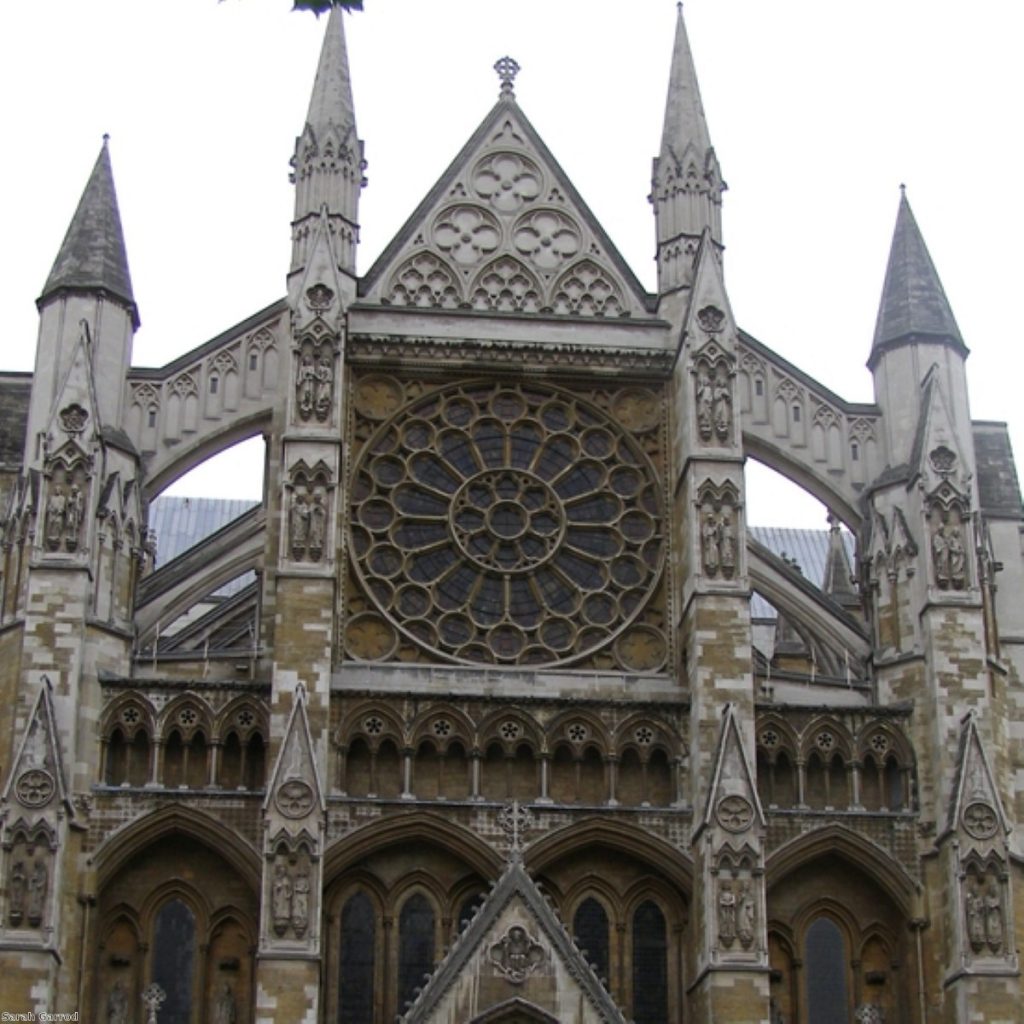Church fights on as bishop threat grows
By Alex Stevenson
The Church of England has rejected suggestions from Jack Straw it will give up its seats in the House of Lords without a fight.
Ending the association would be a “retrograde step”, a spokesman told politics.co.uk, after heavy hints from the justice secretary yesterday that bishops may no longer be welcome.
Mr Straw told an Unlock Democracy seminar the exclusive presence of the Church of England among Britain’s religions in parliament was “anomalous” but refused to indicate whether he believed, in a predominantly elected House of Lords, their historic place should be protected.


He said he hopes a transition to an elected House of Lords will take place over three parliamentary cycles, meaning the decision on whether to go to an 80 per cent or 100 per cent elected chamber will not have to be taken for some years.
Straw supports 15-year limit on peers
“My own guess is the Church of England may come to a view [over the next ten years] that it is not appropriate for bishops to be in the legislative chamber,” the justice secretary suggested.
But the Church has vigorously rejected that view.
“This is a guess which has no basis in what the Church of England has said thus far,” the spokesman for the Church added.
“The Church has been consistent in challenging the case for a wholly elected chamber and in arguing that if there is a move to a partly elected chamber, bishops should remain, albeit in reduced numbers if the size of the second chamber is substantially reduced.”
Last year’s white paper on Lords reform appeared to commit to the ongoing relevance of bishops to the legislative process. It backed the “fundamental constitutional principle” of the “relationship between the crown, parliament and Church that underpins the fabric of our nation”.
Issue brief: House of Lords reform
That contrasted with Mr Straw’s views as expressed yesterday. He said: “It doesn’t follow if you have an established church they have to have a place in the legislative parliament.”
The lords spiritual have sat alongside the lords temporal since the dawn of Britain’s parliament, whose customs were established before the 16th century Reformation and establishment of the Church of England.
Ending the link between parliament in the Church would “weaken” the nature of the establishment, but not end it, the Church believes.
A growing movement in British society disagrees with the ongoing relevance of bishops to the Lords, however.
The British Humanists’ Association opposes both the privileged position of the Church of England in parliament and the relevance of a religious voice to the lawmaking process.
Responding to Mr Straw’s comments, it pointed out that only one country other than Britain retains specified places for religious figures in its lawmaking bodies – Iran.
“Allowing the continuation of this privilege as a purely symbolic commitment to establishment – when its removal would not affect the establishment of the Church of England in any way – is an affront to democratic principles,” a spokesperson told politics.co.uk.
“To claim as the government has that bishops are uniquely qualified to provide ethical and spiritual insights – and therefore should retain their right to sit in the second chamber – is factually incorrect and offensive.”
The fundamental question of relevance is likely to shape the future of the 26 lords spiritual still permitted to sit in parliament’s second chamber by virtue of their ecclesiastical offices.
The Church of England spokesman added: “Bishops in the Lords help connect the second chamber with the people, parishes and regions of England, not just their own worshippers.
“In an age where the role of religion in shaping social and moral attitudes is increasingly recognised to be highly significant, the idea of shaping the second chamber on a purely secular model would be a retrograde step.”
Mr Straw appeared to acknowledge the extent of the challenge facing those who wish to achieve a 100 per cent elected chamber yesterday.
Speaking generally, he said: “Getting this through at the next stage is going to be a hard. They’ll argue on grounds of practicality. or on the bishops. These arguments will work themselves out in the wash.”
Focusing on the bishops question, he added: “Never underestimate the strength of feeling among not just the established church, but other faith communities.”









